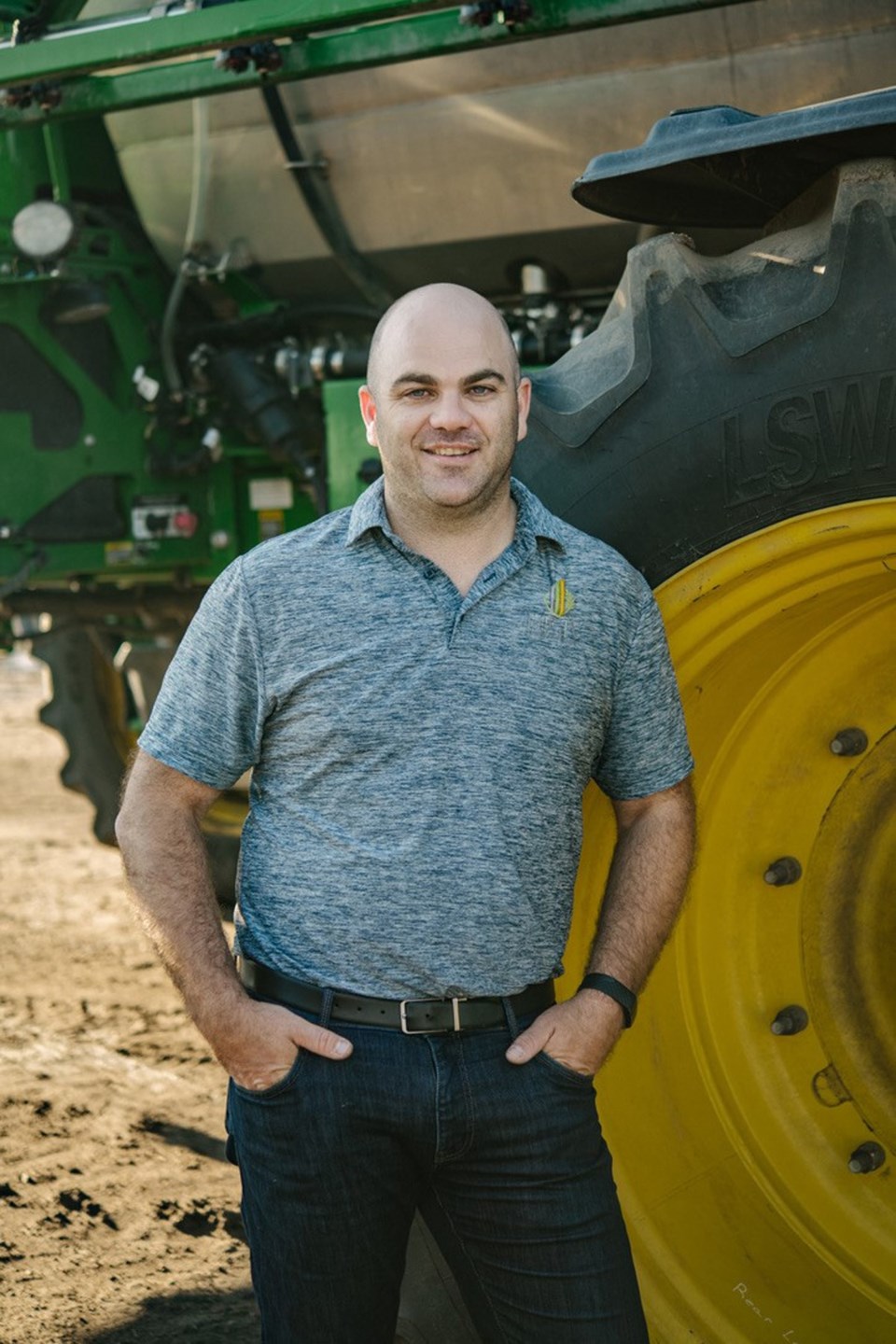MOOSOMIN - A Moosomin-area grain producer has been recognized internationally as Climate Positive Leader in agriculture.
Kristjan Hebert recently received the Climate Positive Leader award from Corteva Agriscience.
Hebert is the managing partner of Hebert Grain Ventures (HGV), a 30,000-acre grain and oilseed farm in Moosomin, SK. He was the only Canadian farmer to be recognized alongside others from Australia, Brazil, the US and Kenya.
The Climate Positive Leader program recognizes early adopter producers who are successfully implementing, scaling and sharing climate positive practices.
“We were honoured to be recognized as a farm that, despite our large size, is able to effectively implement sustainable practices, both those that happen naturally and those that are aided by new technologies,” said Hebert in a recent release.
Hebert said the award came after a nomination following which he “had to do an interview about a bunch of our practices.”
The release noted some of those practices include: *Grid soil sampling every four acres - allows for highly customized nutrient prescriptions even on a large field
*Treating all nitrogen with nitrogen inhibitors - prevents nitrogen breakdown and carbon burnout
*Variable-rate fertilizer application - there is no “flat rate” for fertilizer; only use what the soil requires for yield goals
*Precision equipment with sectional control mechanisms - sensors prevent overlap or double applications
*Rotational and fall cropping - increases soil health by lengthening the number of days the land has vegetation that absorbs carbon dioxide
*Zero tillage/low till farming - reduces soil disturbance and carbon loss
*Focus on data to prove rates of carbon sequestration
Hebert told Yorkton This Week that while staying on the cutting edge of technology was important, it has to mesh with the future sustainability of the farm, adding he believes generally farmers have always been good stewards of the land because it is the basis of the farm business. “We make our living on the land,” he said, adding protecting the resource is essential to future production. Hebert said as a philosophy they want to leave the land and the overall farm industry in a better condition than it was. “So we need our land to be in better shape,” he said. It’s the same with the farm sector where Hebert said there needs to more technology, more good science, more related industries to grow the overall economy of agriculture. Hebert said he can understand why at times the consumer becomes concerned over technology, new science, herbicides and genetically modified crops – largely because the farm sector has not done the best job of making advancements better understood and less scary. “I understand why they might be nervous,” he said. “. . . We need better storytelling around the science.” It can be as simple as explaining things in a simpler way, said Hebert. For example, he said fertilizer for a crop is much like giving children vitamins to be healthier, and pesticides are similar to giving a crop a prescription drug to help it stay healthy. “We don’t tell the story that way. We let it be scary,” said Hebert. The new technology must also be scalable, said Herbert, adding it has to work across all 30,000 acres to make sense to implement. He added other businesses grow by getting larger because there “is power by scaling” and farms need to do that too. Among the innovations on the farm to-date Hebert said the key one has been grid soil sampling. “It’s a report card that all the other processes are working,” he said. Another important step has been growing the farm to allow the business to hire good people and keep them. Hebert said it’s difficult to find good people with the idea the job is ‘do whatever I tell you today’. With scale they can hire a mechanic, and while he might need to drive a tractor some days, they know they will be a mechanic a majority of the time. Finding and maintaining good people is part of building a good team. Hebert said the team includes hiring experts in some cases, such as a financial advisor or agronomist. “You can’t be good at everything,” he said, adding you can hire the expertise though.




